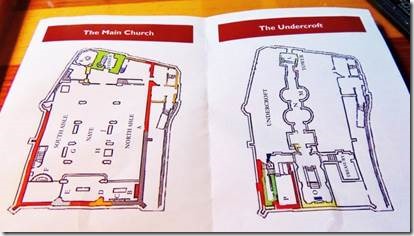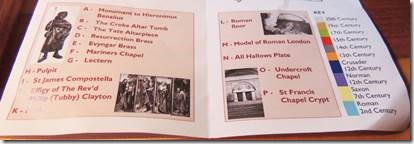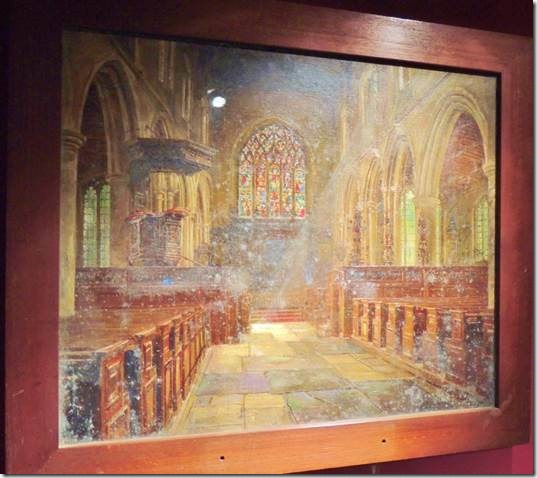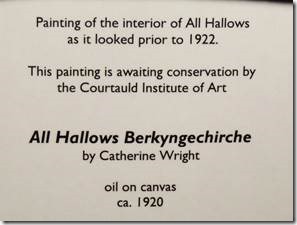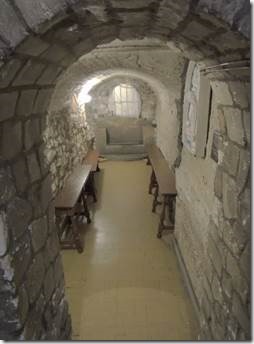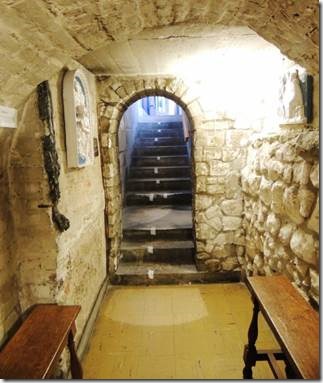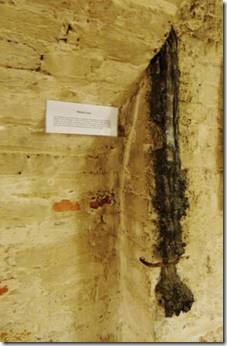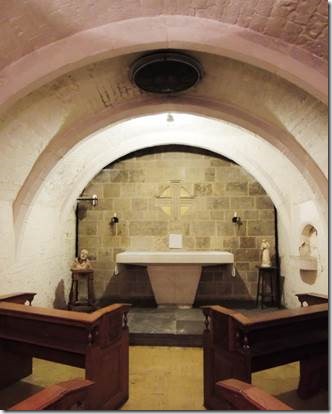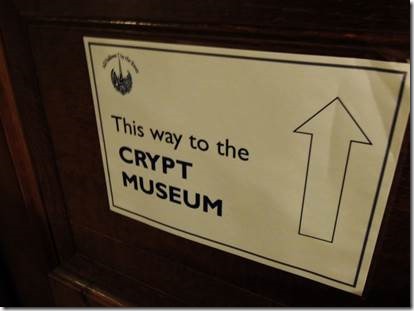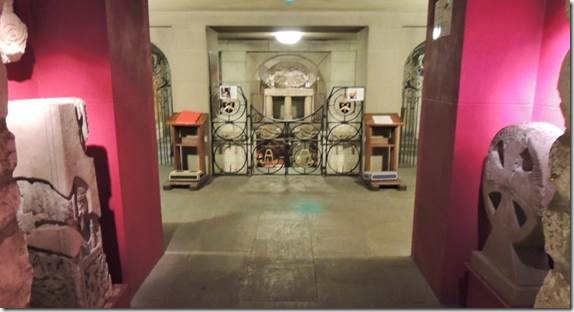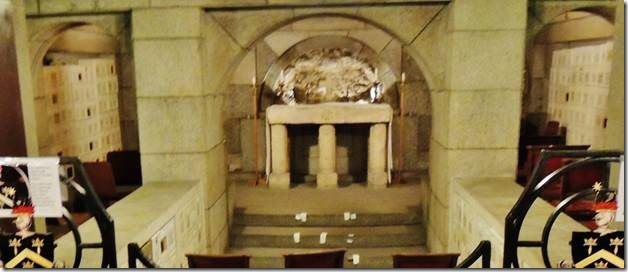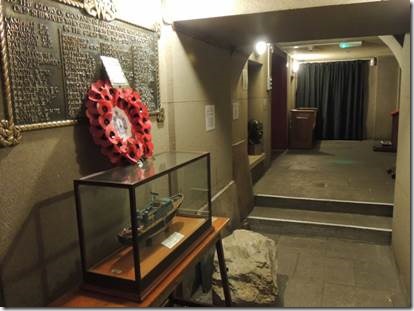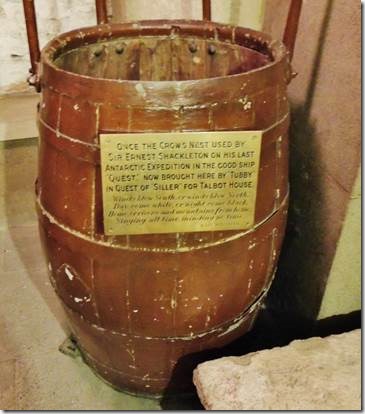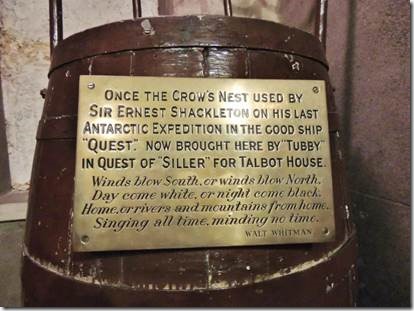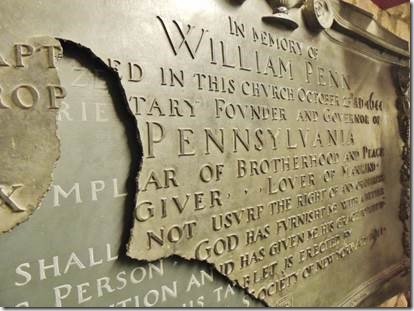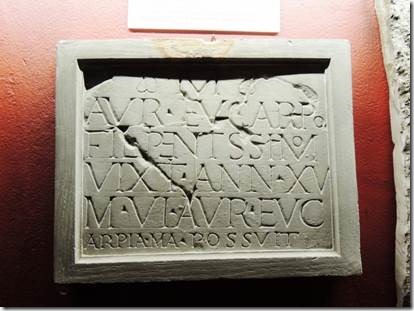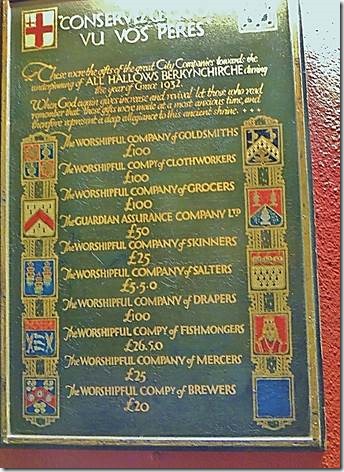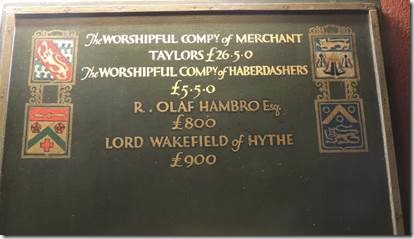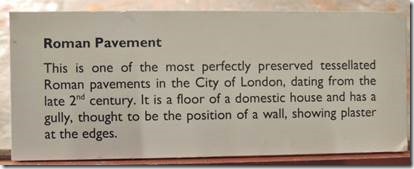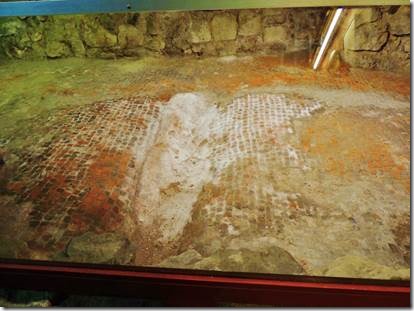Cheers,
Well maybe cheers isn’t the right way to start on the 50th anniversary of the Kennedy Assassination. I believe history would have been different.
This is email is about All Hallows Undercroft. I should have mentioned in the prior email that the official tours have ceased for the winter. Now there are several school project in progress many days with bits of the church blocked off or clogged with children. Best to go after 3 pm. You learn so much more on a tour if you’re only vaguely interested. The guide points out bits you’d not have noticed making everything more interesting. With only myself and camera visiting places I do it backwards. I go on the tour and then learn about things afterwards so half the time I’m taking the tour with you through my photos.
Ru
All Hallows by the Tower : The Undercroft
|
This painting was in the Undercroft but I should have included it in the email about the Main Church. |
|
Beneath the present nave is the undercroft of the Saxon church containing three chapels: the Undercroft Chapel, the Chapel of St Francis of Assisi and the Chapel of St Clare. |
|
Chapel of St Clare “Clare of Assisi was born into a wealthy Italian family but soon shunned her luxurious upbringing to embrace the life of piety and poverty. Inspired by the words of Francis of Assisi, Clare fled her home and joined Francis, establishing her own religious order. The group became known for their austere and devout lifestyle and for the power of their prayer, which is credited with saving Assisi from invaders twice. After Francis’ death, Clare continued his work and broadened her own influence. Clare died in 1253 and was canonized two years later by Pope Alexander IV. http://www.biography.com/people/st-clare-of-assisi-9249093 |
|
“The misshapen piece of lead is left as a reminder of the destruction that All Hallows suffered in the bombings of WW2. On December 29th 1940 a bomb came right through the east window destroying much of the centre of the church. Three weeks later the ruined church also suffered from fire bombs. The heat from those fires was so intense that the roofing lead melted and ran down the walls. |
|
St Francis Chapel just next to the Chapel of St. Clare ( I have a soft spot in my heart for St. Francis who loved animals.) St Francis organizations now train wonderful services dogs! |
|
“The Crypt Museum leads you on a fascinating journey through time, beginning with the Roman tesselated floor of a domestic house in the late 2nd Century and charting the history of the church, its people and the City of London. The museum is in part of the original Saxon church and contains a collection of Roman and Saxon artefacts, church plate and ancient registers dating back to the 16th century. Their entries record the baptism of William Penn, the marriage of John Quincy-Adams and the burial of Archbishop William Laud amongst many other historic events on Tower Hill.” http://www.allhallowsbythetower.org.uk/visiting/crypt-museum/ |
|
The Undercroft Chapel is constructed out of the former ‘Vicars’ Vault’, and is now a columbarium for the interment of ashes of former parishioners and those closely associated with the church. This site was formerly outside the main building and part of the burial ground adjacent to the apse of the Saxon church. Here lie at least three Saxon coffins, buried in the pre-Norman period. The rough rear wall is part of the 14th century church. Standing below the present High Altar are altar stones brought back to All Hallows from Castle Athlit in present-day Israel. It is thought that the altar comes from the Chapel of Richard Coeur de Lion in the Templar Church of Athlit. This has great significance for All Hallows in view of the connection with the inquisition of Knights Templar in the earlier Chapel of St Mary. It was in a vault in this chapel that Archbishop William Laud lay buried for over twenty years after his beheading on 10th January 1644, and a memorial plaque commemorates this. |
|
Memorial to those who died for their country |
|
I can’t imagine climbing rope ladders and then crawling into and out of this thing…in the Antarctic! |
|
Plaque for William Penn whose father saved All Hallows from the Great Fire |
|
A very human bit of history |
|
Donations from various guilds and the big donation from Lord Wakefield of Hythe |

